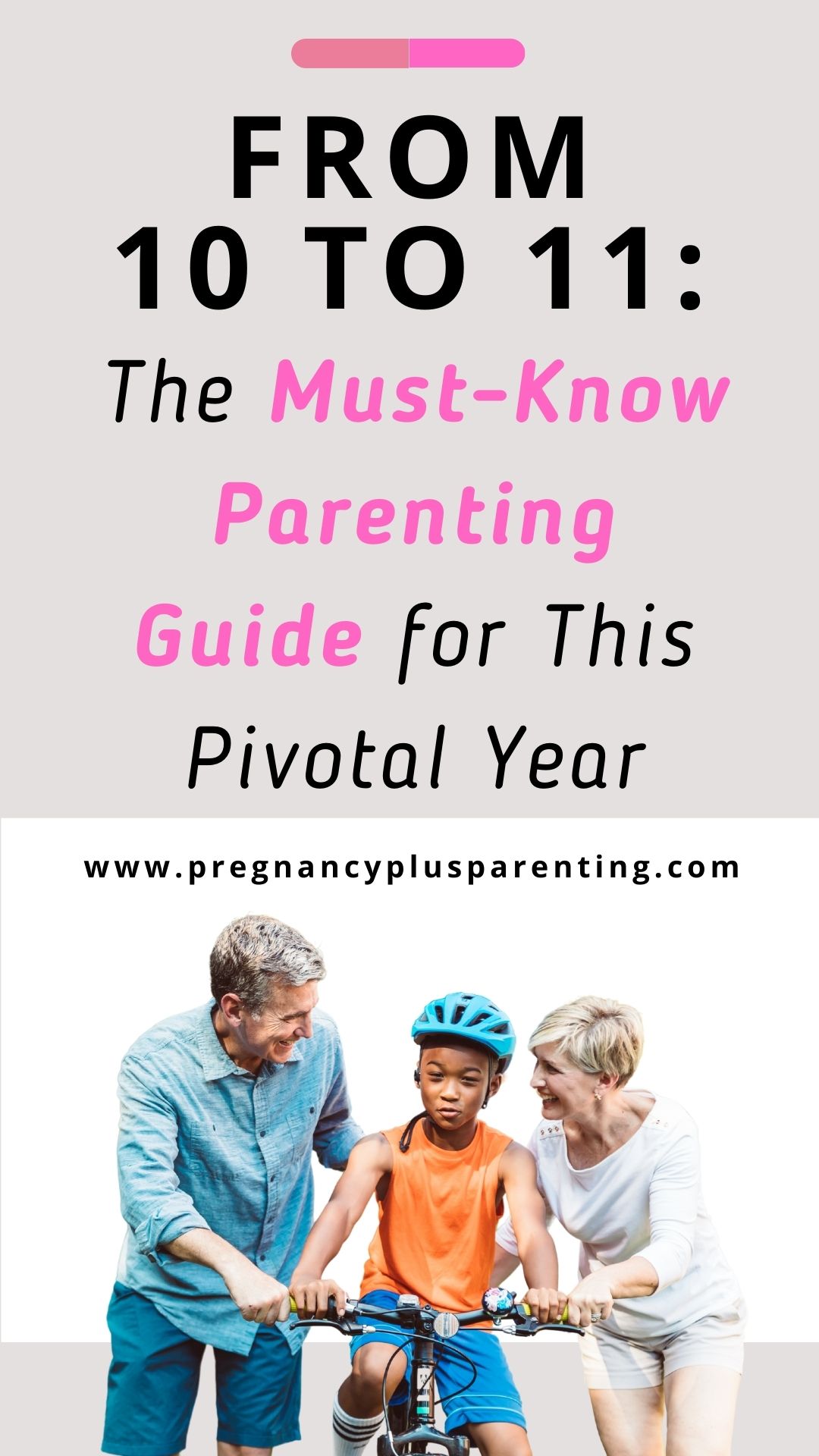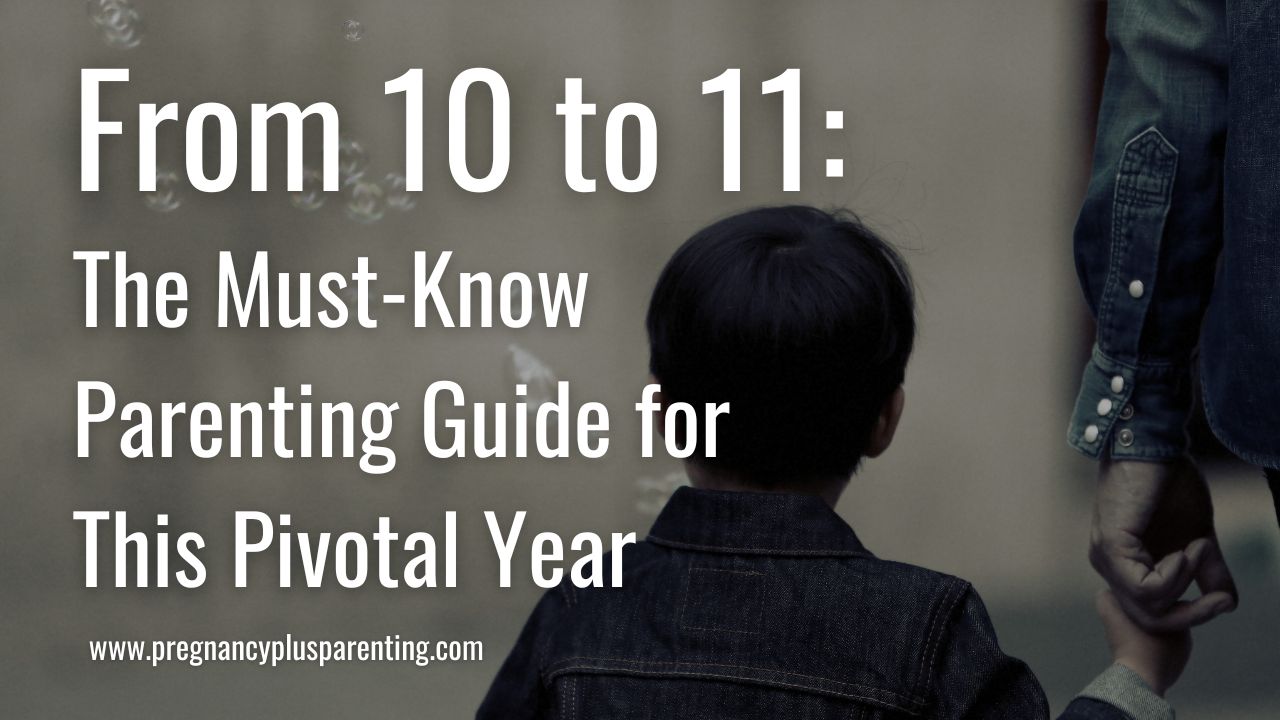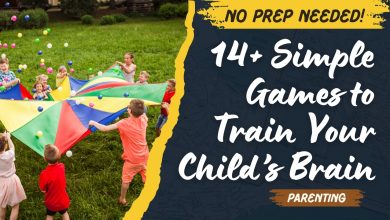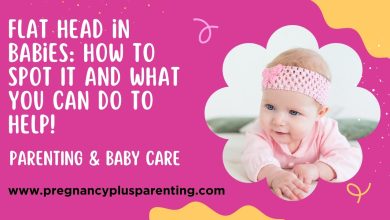From 10 to 11: The Must-Know Parenting Guide for This Pivotal Year
The 10th birthday is a milestone for children entering adolescence. At this age, they develop important social, emotional, and cognitive skills that will further shape their personalities.
The 11th year of life brings with it many changes, both in school and in the children’s development.
Developmental milestones in the 11th year of life
Cognitive development
At the age of ten, children often experience a significant leap in cognitive development. They begin to think more abstractly and solve complex problems. Their curiosity and desire to understand the world increase.
Social development
The social landscape of a ten-year-old becomes more complex. Children learn to deepen friendships and demonstrate a greater understanding of others’ feelings. They begin to become more aware of their own social identity.
Physical development
Children undergo many physical changes at this age. Their motor skills improve, and they gain dexterity and coordination, which is especially evident in sports and games.
Education and learning
Key skills for school
Ten-year-olds are able to understand complex mathematical concepts and refine their reading skills. It’s a crucial year for solidifying fundamentals that will be important in later years of education.
Learning styles and learning tips
Every child has their own learning style. Whether visual, auditory, or kinesthetic, it’s important for parents and teachers to recognize and encourage these to make learning more effective and enjoyable.
Social relationships
Promote friendships
Friendships are especially important at age 11. Children learn how to make and keep friends and how to resolve conflicts constructively.
Dealing with conflicts
Conflict resolution skills are a key skill children develop at this age. They learn to articulate differences of opinion and find compromises.
Leisure and interests
Sports and activities
Active leisure activities play a major role. Sports not only promote physical health but also teach teamwork and discipline.
Creative hobbies
Creativity is equally important. Painting, music, and theater offer children the opportunity to express themselves and strengthen their emotional intelligence .
Support from parents
Emotional support
Emotional support is crucial. Parents should encourage open communication and provide their children with security and trust.
Parenting tips and tricks
Practical parenting tips can help parents to master the challenges of this year and to provide optimal support to their children.
Preparing for the future
Developing values and self-image
At age 11, children begin to develop their own values and form a deeper understanding of themselves. This lays an important foundation for the years to come.
Importance of family
The role of the family remains central. It provides children with stability and guidance as they prepare for the challenges of adolescence.
10 years old and already really big!
This year is an exciting time in which children grow and develop in many areas. With the right support and encouragement, they can make the most of these important years.
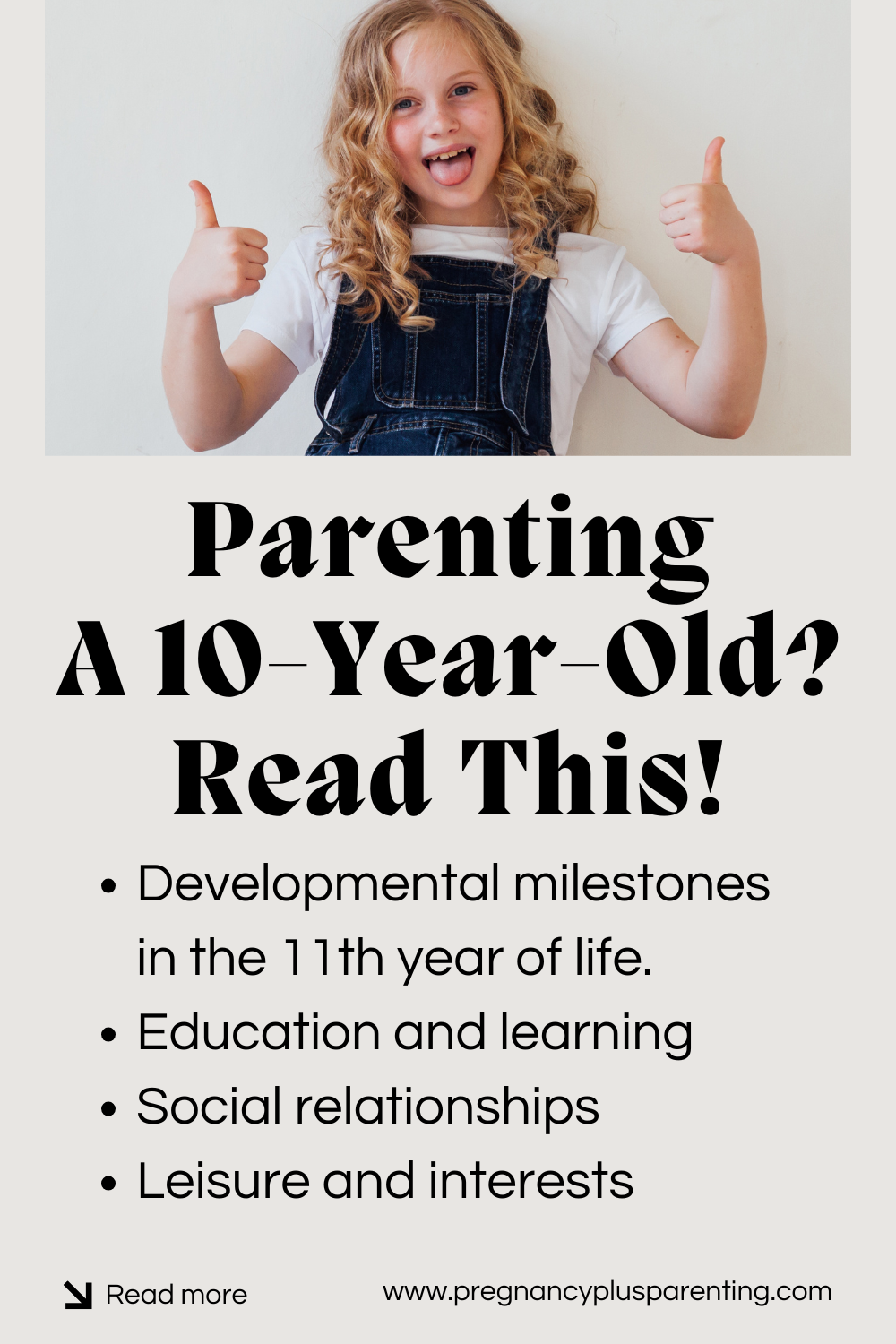
FAQ
1. How can I support my child’s cognitive development in the 11th year of life?
To encourage your child’s cognitive development, offer diverse learning opportunities that encourage critical thinking and problem-solving skills. Puzzles, board games, and age-appropriate riddles are great.
It is also helpful to read regularly and have discussions about what you have read to improve your understanding and language skills.
2. What role do friends play in the life of a ten-year-old?
Friends are especially important at this age, as children begin to hone social skills that are central to adolescence and adulthood. Good friendships promote self-esteem, empathy, and cooperation. They also help children develop conflict resolution strategies and position themselves within the group.
3. How can I support my child in choosing his or her leisure activities?
Observe your child’s interests and offer opportunities to explore them further. Whether it’s sports, music lessons, or art workshops, encourage your child to try out different activities.
It’s important that your child enjoys it and doesn’t feel overwhelmed. Encourage your child to explore and deepen their passions.
4. Which educational resources are particularly helpful for ten-year-olds?
Helpful educational resources include online learning platforms designed specifically for children, educational apps, books, science kits, and museum visits.
Choose resources that are age-appropriate and appeal to your child’s natural curiosity to encourage both learning and enjoyment.
5. How do I deal with my child’s emotional fluctuations?
Emotional fluctuations may occur more frequently during the 11th year. It’s important to be patient and listen to your child’s concerns. Provide a stable, supportive environment where your child feels safe to express their feelings.
Encourage your child to recognize feelings and deal with them in healthy ways, such as through conversation or creative expression such as art or writing.
